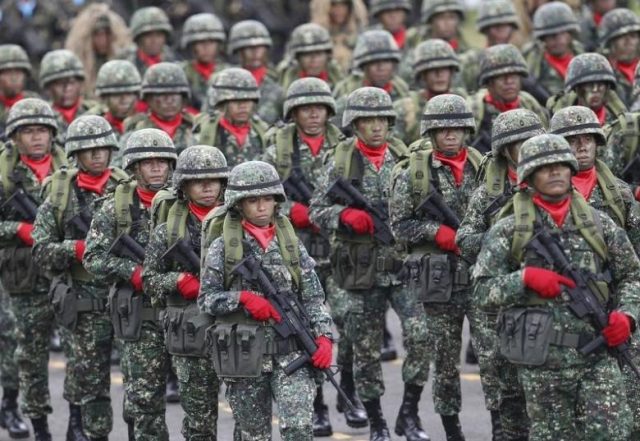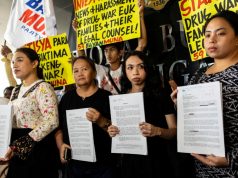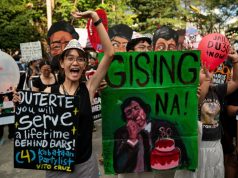MANILA, Philippines — President Rodrigo Duterte declared martial law over the whole of Mindanao on May 23 in the wake of the fighting between government forces and what are described as local terrorists in Marawi City. The declaration will last for 60 days.
On December 5, 2009, then President Gloria Macapagal-Arroyo issued Proclamation 1959 declaring martial law in Maguindanao province following the November 23 Ampatuan massacre, in which 58 people, 32 of them journalists, died. It was lifted seven days later.
On September 21, 1972, then President Ferdinand Marcos signed Proclamation 1018, which placed the entire Philippines under martial law. It lasted eight years and four months and was marked by widespread human rights abuses. Although he lifted martial law in 1981, Marcos continued to rule as dictator until his ouster in February 1986.
Here’s the pertinent provision in the 1987 Constitution about the declaration of martial law:
Art. VII, Sec. 18. – The President shall be the Commander-in-Chief of all armed forces of the Philippines and whenever it becomes necessary, he may call out such armed forces to prevent or suppress lawless violence, invasion or rebellion. In case of invasion or rebellion, when the public safety requires it, he may, for a period not exceeding sixty days, suspend the privilege of the writ of habeas corpus or place the Philippines or any part thereof under martial law.
Within forty-eight hours from the proclamation of martial law or the suspension of the privilege of the writ of habeas corpus, the President shall submit a report in person or in writing to the Congress. The Congress, voting jointly, by a vote of at least a majority of all its Members in regular or special session, may revoke such proclamation or suspension, which revocation shall not be set aside by the President.
Upon the initiative of the President, the Congress may, in the same manner, extend such proclamation or suspension for a period to be determined by the Congress, if the invasion or rebellion shall persist and public safety requires it.
The Congress, if not in session, shall, within twenty-four hours following such proclamation or suspension, convene in accordance with its rules without need of a call.
The Supreme Court may review, in an appropriate proceeding filed by any citizen, the sufficiency of the factual basis of the proclamation of martial law or the suspension of the privilege of the writ of habeas corpus or the extension thereof, and must promulgate its decision thereon within thirty days from its filing.
A state of martial law does not suspend the operation of the Constitution, nor supplant the functioning of the civil courts or legislative assemblies, nor authorize the conferment of jurisdiction on military courts and agencies over civilians where civil courts are able to function, nor automatically suspend the privilege of the writ of habeas corpus.
The suspension of the privilege of the writ of habeas corpus shall apply only to persons judicially charged for rebellion or offenses inherent in, or directly connected with, invasion.










